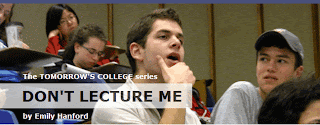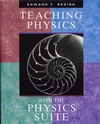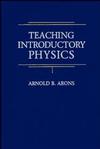Where can I learn more about research-based teaching in physics?

PhysPort:
PhysPort, the site you're on right now, is designed to support physics teaching by providing resources based on physics education research (PER), including guides to 50+ research-based teaching methods, guides to 100+ research-based assessments, expert recommendations by PhysPort staff and PER experts, and video workshops for faculty professional development and TA/LA training. For more resources beyond this site, see the suggestions below.
Videos:
Confessions of a Converted Lecturer Eric Mazur, the Harvard professor who invented Peer Instruction, shares the personal story of how he realized his lectures weren't working and radically changed the way he teaches physics.
Virtual New Faculty Workshop Videos of presentations from the live Workshop for New Faculty in Physics and Astronomy featuring leaders in physics education research and curriculum development discussing teaching techniques proven to work in many environments and developments in physics/astronomy curriculum and pedagogy
Podcasts:
 Learning about Teaching Physics Nuggets from PER that you can use in class tomorrow. Co-hosted by veteran high school physics teacher Michael Fuchs and physicist and education researcher Stephanie Chasteen, each episode investigates a piece of the research literature and how it can relate to your classroom.
Learning about Teaching Physics Nuggets from PER that you can use in class tomorrow. Co-hosted by veteran high school physics teacher Michael Fuchs and physicist and education researcher Stephanie Chasteen, each episode investigates a piece of the research literature and how it can relate to your classroom.
 Don't Lecture Me American Radio Works' podcast giving a nice introduction to PER.
Don't Lecture Me American Radio Works' podcast giving a nice introduction to PER.
Books:
 Teaching Physics with the Physics Suite Joe Redish's brief introduction to the implications of PER for physics instruction and handbook for improving physics teaching. The author reviews the cognitive basis for the current instructional consensus in PER and discusses a dozen popular active-engagement teaching methods and various methods and tools to improve physics instruction.
Teaching Physics with the Physics Suite Joe Redish's brief introduction to the implications of PER for physics instruction and handbook for improving physics teaching. The author reviews the cognitive basis for the current instructional consensus in PER and discusses a dozen popular active-engagement teaching methods and various methods and tools to improve physics instruction.
 Five Easy Lessons Randall Knight discusses the value of interactive forms of physics education and gives examples of lessons, activities and demonstrations for the physics classroom. This book includes sections on student thinking about various topics in physics, and is an excellent reference for any physics teacher or physics education researcher.
Five Easy Lessons Randall Knight discusses the value of interactive forms of physics education and gives examples of lessons, activities and demonstrations for the physics classroom. This book includes sections on student thinking about various topics in physics, and is an excellent reference for any physics teacher or physics education researcher.
 Teaching Introductory Physics Arnold Arons' classic exploration of pedagogical issues in student learning of physics. This is an essential reference to physics pedagogy at high school, intro and lower division college and university levels.
Teaching Introductory Physics Arnold Arons' classic exploration of pedagogical issues in student learning of physics. This is an essential reference to physics pedagogy at high school, intro and lower division college and university levels.
Blogs:
Teach. Brian. Teach. Brian Frank's inquiry on his inquiry into science and science teaching. Brian is a physics professor and physics education researcher at Middle Tennessee State University.
SuperFly Physics Andy Rundquist's blog about teaching physics at a small college using Standards Based Grading and other techniques from PER. Andy is a physics professor at Hamline University.
The Unabashed Academic Joe Redish's blog provides occasional viewpoints on a variety of subjects including science, education, and politics. Joe is a physicist/education specialist at the University of Maryland and a lifelong academic with thoughtful opinions on many issues seen through the lens of science.
Physics! Blog! Kelly O'Shea's blog is a great resource for active-learning activities she uses in her high school physics class.
Action-Reaction Frank Noschese's blog serves as a reflection of his teaching and to promote pedagogical practice that are important to him like modeling, inquiry, and standards-based grading. Frank is a high school physics teacher.
Turn to Your Neighbor The official Peer Instruction blog, designed to respond to your requests for resources, tips, and discussion about and engagement with Peer Instruction on a global scale.
Email Discussion Lists:
The Physics Learning Research List (PhysLrnR) An email discussion list for the community of researchers in PER, with an emphasis on practical pedagogical issues.
 Add a Comment
Add a Comment


